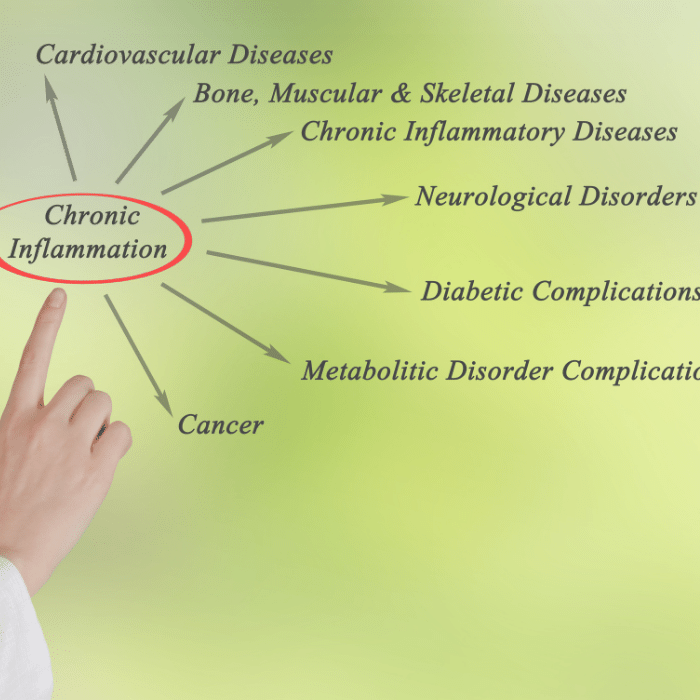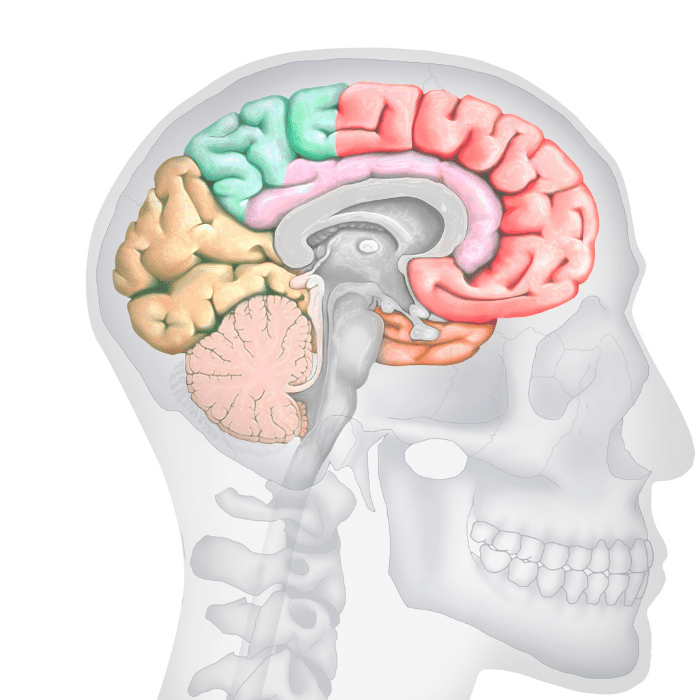In Part 1, I dug into two reasons why you might be experiencing weight loss resistance. Today let’s look at 3 other reasons the weight (especially around the belly) might not be coming off as quickly as you’d like.
There are certainly other reasons besides the five that I’m detailing in these two posts, but these do cover a large chunk.
3) Inflammation
Inflammation is one of those words that gets thrown around a lot when talking about the body. Inflammation in and of itself is not a bad thing; it’s a natural process of the body to protect and heal when there is a problem.
Acute inflammation is something that happens when you get an injury or get an acute infection or other sickness. The body inflames, bringing healing nutrients and immune cells to the site of injury or throughout the body to fight off an infection. As the immune cells do their job, the body anti-inflames and things go back to normal.

Chronic inflammation is what happens when the immune system is always in a state of high-alert. This usually develops from a number of factors. Eating nutrient-poor foods, exposure to environmental toxins, food additives, stressful lives, medications, etc. overtime affect the lining of the small intestine. This can cause increased intestinal permeability where the tight junctions in the intestinal lining that usually only allow the smallest molecules from broken down food (aka: nutrients) weaken and allow larger molecules into the bloodstream.
The body does not recognize these and launches an immune attack. Unless you take steps to stop it, this will continue, causing your body to be chronically inflamed.
When the immune system is never allowed to rest, certain inflammatory compounds actually further the inflammatory process and keep it going, creating a cycle!
Chronic inflammation causes a lot of other downstream effects in the body but in particular it can make it difficult to lose weight.
Inflammation impairs the signaling of the hormone insulin. Insulin is responsible for getting sugar out of your blood and into your cells to be used for energy. When insulin signaling is hindered, it is harder to burn energy and easier to store it as fat. Your cells become resistant to insulin, making it difficult for insulin to do its job. If insulin can’t get glucose into the cells for energy it has to do something else with it.
So, the glucose instead goes to the liver where it gets converted into fat for storage.
To make matters worse, excess body fat also secretes inflammatory compounds, furthering this problem.
If the body is in a chronically inflamed state, it will have an easier time storing fat but not an easy time burning it.
Taking care of the inflammation, instead of focusing on just trying to lose weight is a smarter, healthier, and more sustainable long term approach.
4) Leptin resistance
Leptin is a hormone released by adipose (fat) tissue that signals to the hypothalamus in the brain that the body has adequate fat stores. This isn’t happening on a meal by meal basis, but works more long-term to maintain normal weight.
When leptin levels fall, the brain is signaled to increase hunger and decrease metabolism to conserve energy. When leptin levels are higher, the brain is signaled that there is enough food storage for long term use.
When someone loses a bunch of body fat quickly (you know, like a crash diet!), leptin levels will decrease, signaling the brain to try to get more energy (food). This is just one reason why it’s so easy to gain weight back after losing it! The body’s “set weight” has been steadily increasing over a long period of time so the brain gets used to that new “normal.” When the person loses that weight the brain isn’t getting much leptin coming in and will then try to conserve energy (slow the metabolism) and get more food (make you hungry!).
Now, leptin resistance is a problem that can develop because of that chronic inflammation we just went over. Inflammatory compounds can block the leptin receptors in the hypothalamus, making leptin ineffective.
So, the brain doesn’t get the message that there is indeed enough body fat and it keeps increasing hunger and slowing down the metabolism to again try to conserve energy.

See, our brains are always just trying to survive. When we learn how to work with our biology and support the natural processes keeping us alive, we can more effectively work toward our health goals, instead of feeling like we’re fighting against our bodies!
Emotional factors
Oof. this is such a huge aspect of bringing true healing to our bodies and minds. There is often much guilt and shame surrounding weight struggles. You can be “doing everything right” but have emotional obstacles, belief patterns, shame, and negative attitudes sabotaging your efforts.
These thoughts become a cycle that is hard to break because for better or worse, our brains like patterns. If your brain is in a pattern of negative self-talk and limiting beliefs, not only does that impede your desire to make wise dietary and lifestyle choices, but it also has a negative downstream physiological impact.
If your brain is in a cyclical state of shame, guilt, and negativity, that will likely have an impact on your body’s stress response, triggering that fight or flight state which raises cortisol and makes weight loss harder.
There is hope for all this too!
The approach to at least addressing inflammation and leptin resistance is basically exactly the same as what to do for the first two reasons for weight loss resistance. If you haven’t already, the first step is to go back to the intro article and take the steps I outlined there.
Or, if you know yourself well enough to know you need support for those initial steps, the Restart® Program is a fantastic place to start.
If taking those first steps doesn’t solve the problems, maybe we need to dig a little deeper to see what’s going on in your body. Doing some functional blood testing to address gut and/or metabolism struggles can really help us to see what might be some underlying sources of imbalance in your body.
When it comes to addressing the emotional, mental, and spiritual factors involved in weight loss resistance, you truly have to take your whole being into account! Taking steps to improve your physical health will help but you will also have to work to turn away when possible from sources of stress (so maybe things like social media, toxic relationships, etc.) and spend your energy on practices that help your brain feel safe. Maybe that means more time spent outside in nature, more meditation or time in prayer, less internet scrolling and more time laughing with friends. Perhaps some talk therapy or other techniques that help your brain disassociate from the negative patterns that have become so normal.
This area can seem a little more “woo-woo” but it is as vital and as big of a piece of weight loss resistance as any of the other areas!
